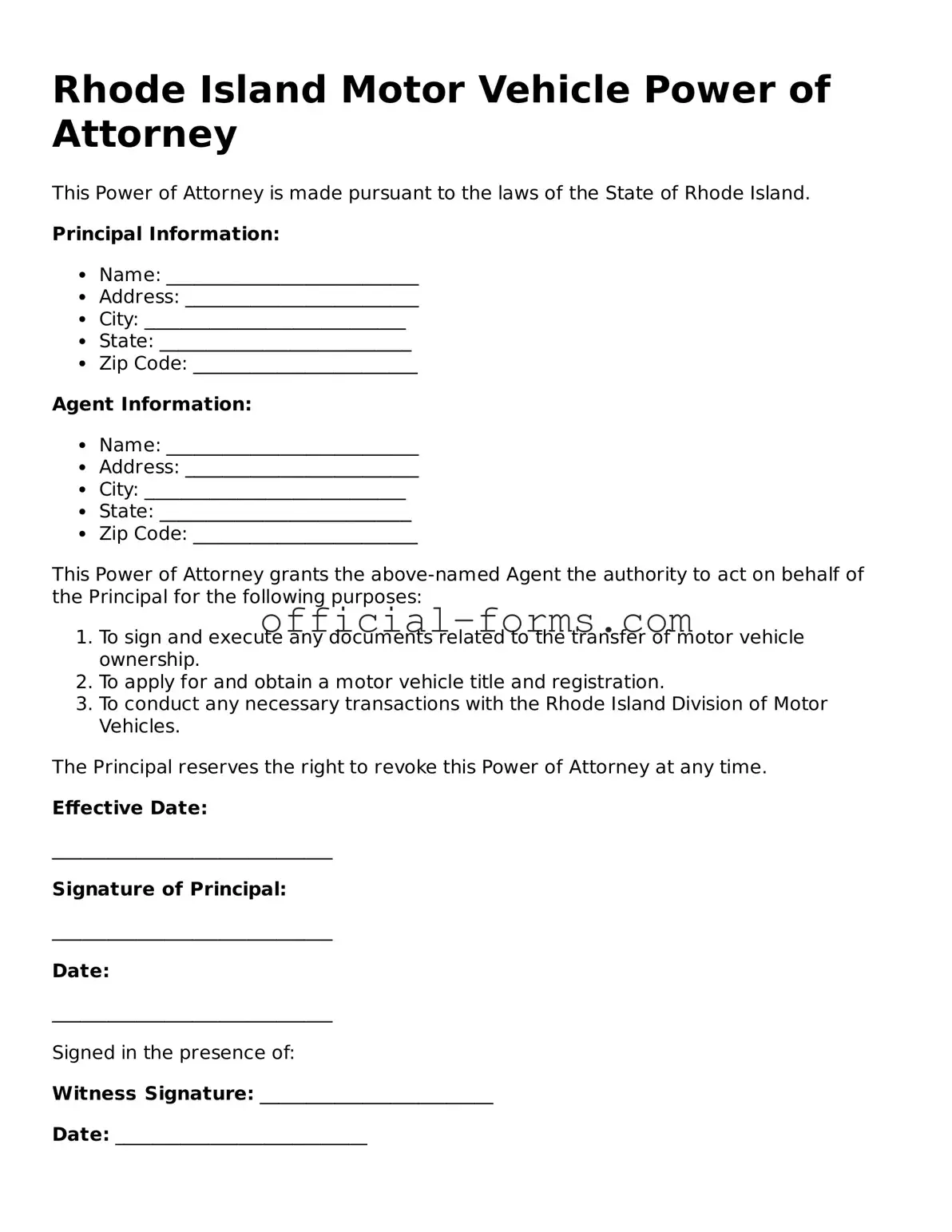Official Rhode Island Motor Vehicle Power of Attorney Document
The Rhode Island Motor Vehicle Power of Attorney form is a legal document that allows an individual to designate another person to act on their behalf in matters related to motor vehicles. This form is essential for facilitating transactions such as vehicle registration, title transfers, and other related activities. By granting this authority, the principal ensures that their chosen agent can handle specific motor vehicle tasks efficiently and effectively.
Open My Motor Vehicle Power of Attorney Now

Official Rhode Island Motor Vehicle Power of Attorney Document
Open My Motor Vehicle Power of Attorney Now
Don’t leave your form incomplete
Finish Motor Vehicle Power of Attorney online quickly from start to download.
Open My Motor Vehicle Power of Attorney Now
or
➤ PDF
